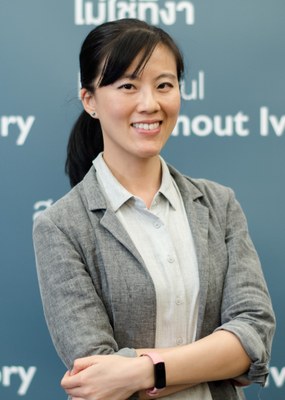Wanweena Tangsathianraphap: International Women's Day CWT Spotlight
How did you start working in Counter Wildlife Trafficking (CWT)?
I started working in CWT through my role as a Social Behavior Change Communication Specialist (SBCC) for the USAID Wildlife Asia project. As an SBCC person, my role is to help plan and implement campaigns to reduce consumer demand on wildlife parts and products, especially elephant ivory and tiger parts in Thailand. I think this is an interesting role as it is a combination of skills sets and knowledge in communications, marketing and research. The SBCC approach has been widely practiced and proved to be successful in the health sector. So, I believe some of its practices can be very useful for the CWT sector.
What has been your proudest moment in CWT?
Personally, I am interested in the SBCC approach to help change people’s behavior and shift social norms. So, I am thrilled to be a part of pioneering the SBCC approach for the CWT sector in Thailand. As far as I know, this is the first time the SBCC approach has been systematically applied to reduce consumer demand on wildlife parts and products in the country. In the past, it has been more about awareness raising. However, it is a continuing process and our work has been built up from previous successes. So along this journey, I see myself as a part of something bigger than me; a collective effort to end transnational crime and wildlife trafficking.
As a woman in CWT, how do you think we can bolster women in Counter Wildlife Trafficking? And how can we ensure greater roles for women in CWT?
As a woman, I believe we can play an important role in strengthening CWT in many ways. This can be done either through personal or professional life such as sharing our knowledge on the right behavior/practices to family, friends and people around us or we can work with other like-minded women in advocating the good value or endorse new social norms (i.e. wildlife-free lifestyle).


